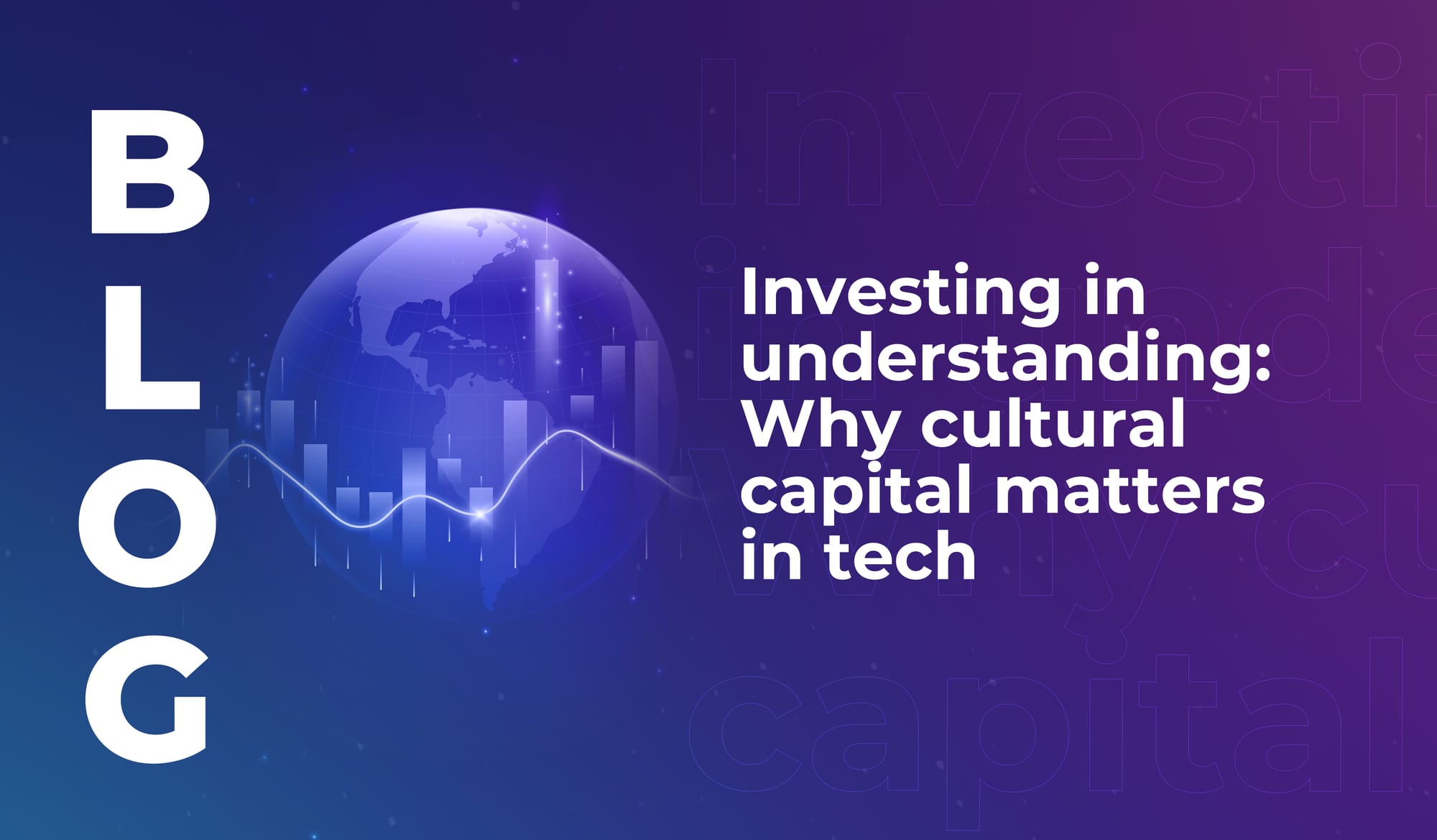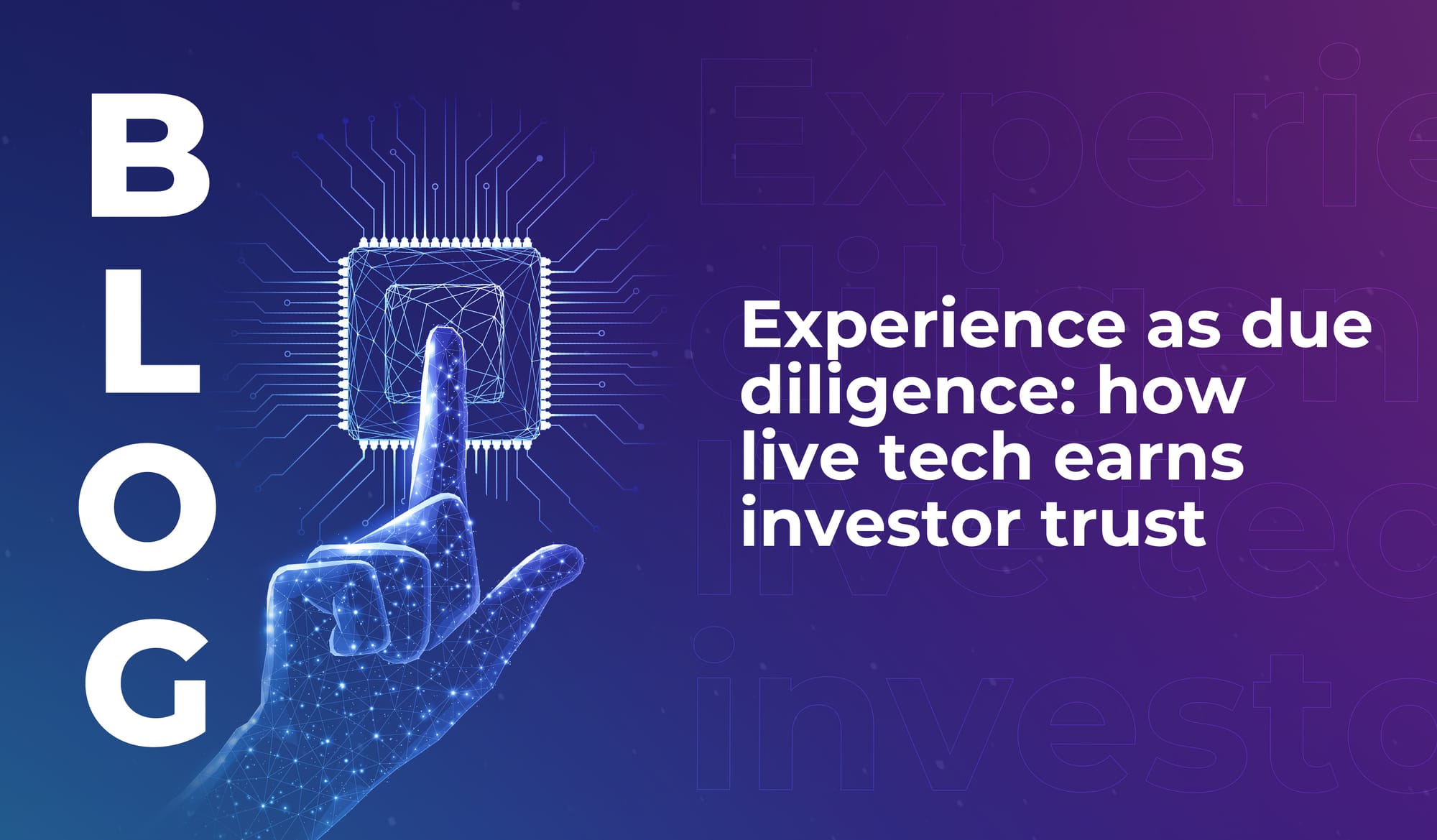
Why CoLAB works: how global brands use events to enter new markets
Learn how global brands use events to enter new markets. Build trust and accelerate relevance through CoLAB collaborations at LEAP.


In tech investment, there are some obvious, hard metrics – deal sizes, exit values. But beneath that, we’re also seeing a movement towards greater understanding; a growing number of investors are focused on knowledge just as much as capital.
Because as tech evolves faster than governance, and markets globalise faster than trust, investors have to stay competitive. And to do that today, you need cultural capital – the capacity to understand people, systems, and stories that differ from your own.
When we interviewed Dr Gillian Marcelle (Founder and CEO at Resilience Capital Ventures), she told us:
“Investments can promote human thriving and planetary stewardship.”
It’s an important reminder that the quality of an investment is not only in its returns but in its ripple effects – social, environmental, and intellectual. Marcelle’s Triple B Framework (removing bottlenecks, illuminating blind spots, and blending capital forms) offers a lens for investors to look beyond spreadsheets and see the systems around their capital.
For tech investors, this translates into the truth that understanding context is a competitive advantage. Whether you’re entering an emerging market or evaluating a founder’s background, if you’re an investor who listens before you lead then you’ll be able to build a stronger, more resilient portfolio.
As an investor, cultural capital is the sum of what you know beyond finance – the historical, social, and behavioural knowledge that informs your judgement. It’s what allows you to read between the lines of a pitch; to really grasp why a founder’s decision-making flows a certain way; perhaps to sense when a market’s rhythm is changing.
In practical terms, cultural capital means being alert to nuance:
As an investor, when you broaden your perspective in this way, you can unlock opportunities you would have missed otherwise. A culturally fluent investor can spot undervalued founders and mentor teams through the subtle human challenges of scale.
Cultural capital also strengthens the investor community itself. As younger or emerging investors enter the market, they often face a dual challenge: navigating complexity and building credibility. Senior investors who take the time to share their knowledge (not just on deals, but on judgement) help stabilise the system.
Mentorship in venture is still too often informal, or even accidental; but a deliberate culture of shared learning can change that. Imagine a fund that pairs every new analyst with a seasoned partner, not only for financial training but for context: how to read a founder’s intent, how to sense when a market story is real or rehearsed.
Those lessons compound. They create investors who see nuance, who understand bias, and who can support founders without overpowering them.
For founders, a culturally aware investor is far more than a source of funds. You become a mirror that reflects both the potential and the pitfalls of expansion.
In fast-growing tech ecosystems, startups often stumble when they cross invisible boundaries; moments like entering a new region, or hiring across cultures, or navigating policy changes. And investors who have a deep understanding of the subtleties involved in those moments can help teams scale sustainably.
As Marcelle put it, “We need to combine different forms of capital to achieve better outcomes.”
Financial, human, and social capital – each reinforces the others. A fund that brings empathy as well as equity can help a startup find not just market fit, but cultural fit.
Cultural capital is a major driver of the platform and opportunities we create for investors at LEAP. Cultural capital (the ability to read the room and build trust and translate a vision across boundaries) is critical to the future of tech investing – and we want to give investors at every stage of their careers the space to build and share that knowledge.
In the years ahead, the most successful tech investors will be the ones who understand people, place, and possibility.
So join us at LEAP 2026 to expand your knowledge and your network. We’re so excited to see you there.

Learn how global brands use events to enter new markets. Build trust and accelerate relevance through CoLAB collaborations at LEAP.

At global tech events, your brand isn’t competing for space – it’s competing for memory. Memory is built through participation, so the brand collaboration opportunities at LEAP are designed for it.

For investors at LEAP, experience is the first stage of due diligence – and has more impact than a pitch deck. Find out how the Tech Arena fast-tracks investor conversations.

Learn how global brands use events to enter new markets. Build trust and accelerate relevance through CoLAB collaborations at LEAP.

At global tech events, your brand isn’t competing for space – it’s competing for memory. Memory is built through participation, so the brand collaboration opportunities at LEAP are designed for it.

For investors at LEAP, experience is the first stage of due diligence – and has more impact than a pitch deck. Find out how the Tech Arena fast-tracks investor conversations.